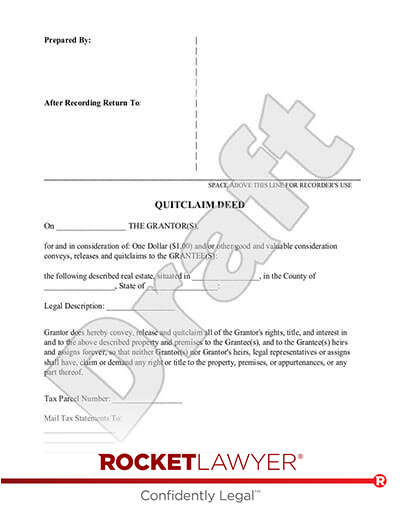What's a Warranty Deed?
A Warranty Deed provides a number of guarantees from the seller to the buyer. It includes a full description of the property and asserts that the seller owns and can transfer full and clear title of the property. It also certifies that the property is free of any easements, liens, or other encumbrances on ownership.
What's a Quitclaim Deed?
Quitclaim Deeds are used when the transfer of ownership in the property does not occur as the result of a traditional sale. For instance, Quitclaim Deeds are common when real estate is conveyed through a Will or as a gift, when property is placed in a trust, or to distribute property as part of a divorce settlement. They're also common when someone wants to sell property but they're not entirely certain what the property boundaries are or whether any other claims can be made on the property. Quitclaim Deeds contain no guarantees of any kind, which means that you could buy a property, receive a Quitclaim Deed, and later find out that the person you bought it from wasn't legally able to sell you the property at all.
What's the difference?
When it comes to a Warranty Deed vs. a Quitclaim Deed, the central difference lies in the guarantees. Under a warranty deed, if it turns out that the property is not what the seller promised or there's an uncleared lien or other block to the title, the buyer can sue the seller and recover damages. But if the property was conveyed through a Quitclaim Deed, the buyer has no remedies. For this reason, a Warranty Deed should generally be viewed as more valuable than a Quitclaim Deed, though there are some special circumstances where that is not the case.
If you're not sure which type of Deed to use, it's best to speak to a lawyer.
This article contains general legal information and does not contain legal advice. Rocket Lawyer is not a law firm or a substitute for an attorney or law firm. The law is complex and changes often. For legal advice, please ask a lawyer.
